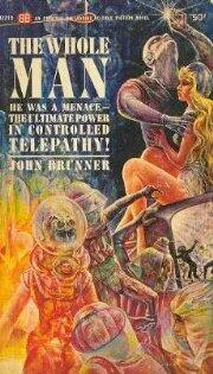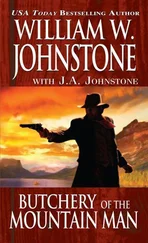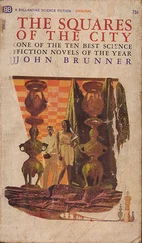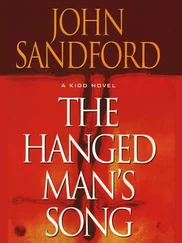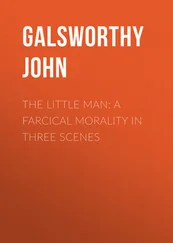They were casting down captives from the Acropolis, that the city’s savior might the more enjoy his triumph to the music of their screams…
Abruptly the smooth course of the action was shattered. It was like an earthquake; buildings shivered, people wavered, the sky darkened. It lasted only a moment, but the impact was staggering. Howson’s contact was broken, and it was several minutes before he could resume it.
“She’s in,” the therapy watchdog reported, his face drawn by the strain into an inhuman mask. “A captive condemned to death. Trying to get the attention of the hero-ego.”
Singh nodded thoughtfully. “That figures. Fits the data we have on his sexual preferences. Any idea what the long-term plan is?”
“Fixed for a short distance,” the watchdog said. “Idea is: lure him to a sexual situation, rely on failing control to establish dominance…Three main sequences envisaged — want them?”
“If nothing more interesting is developing.”
“No.” The watchdog had to pause and swallow hard. “The captives are still being thrown off the rock. Well, either she’ll establish a quasi-real knife — under cover of a banquet, maybe — and castrate him publicly, or she’ll get him into a drunken stupor and establish a fire in the temple, which is why she wanted the material on the destruction of the Parthenon, or she’ll start picking off the reflectives and stage a slave revolt.”
Singh closed his eyes. After all his years of work as a doctor, he was still capable of being sickened at the cold-bloodedness of some of his and his colleagues” methods. What the public castration would do to Phranakis he dared not think — but it figured. If anything could blast him out of his fugue, that would. All the material on his sexual life pointed to the need to reassure himself about his masculinity. The real world had never threatened him with anything so horrible as what Ilse was preparing.
Howson was following developments better now. He had discovered the reason for the “earthquake” — some sort of electrical impulse had been applied to Phranakis’s organ of Funck, to make an opening for Ilse Kronstadt. Now it was much easier to eavesdrop; she made a link with normal consciousness. With fascinated disgust he came to comprehend her plans, and had to force himself to remember that unless something brutal jarred him out of his pleasant dream Phranakis was as good as dead, and along with him four valuable, hard-working non-telepathists whose precious individuality he had trampled on. In a sense he deserved what was coming. But — could anyone really deserve it?
“She’s getting very tired, the watchdog whispered, as though Ilse could overhear him. That was absurd — nothing could reach her now except the full violence of another telepathist. All her energy had been transmuted to will power as she altered, added to and undermined the pattern of Phranakis’s fantasy.
“Is the crisis close?” Singh muttered.
“She’s summoning up all her resources. Trying to distract him with sexual images while she fixes the knife — Oh, God!”
Everyone present, and Howson in his room high overhead, started at the moaning cry. Eyes rolling with terror, not seeing his surroundings but the fearful mental drama between Ilse and Phranakis, the watchdog gasped out the truth.
“She’s weakening! She’s losing control and he’s creating guards for himself — schizoids — an army of them! He’s made himself Cadmus and thrown down dragons” teeth and soldiers are springing from the floor !”
“Bring her back!” Singh cried, and knew even as he spoke that it was ridiculous. Someone — he didn’t bother to notice who — put the fact into words.
“If you try and wake her now she’ll leave half of herself behind. Pan. And she’d rather be dead than crippled.”
So this was how it felt to lose…
She was very tired. It was almost a relief to feel her imaginary self pinioned by the arms, unable to struggle any longer. There were soldiers all around her, huge men with swarthy faces and coarse beards, armored with bronze and leather. Like a forest they stretched away under the dim roof of the marble hall. There had been a banquet, and a thousand revelers — puppets, a human setting for the glory of the master she had attempted to overthrow.
Had there been a banquet? Already she was uncertain where illusion ended; there was actual pain from the brutal grasp on her arms, and that made it difficult to concentrate. The world wavered. She was — she was — a captive. Yes: a condemned enemy, spared by clemency, caught in treachery. And her sentence was fixed, without appeal, by her intended victim.
Death.
Justice! Approved the roar of a thousand voices, making her skull ring like the echoing marble roof, justice!
Well, then — defeat. But it was not so strange after all. Indeed, in a way she had been defeated in everything she had ever tried, for no single task — a flood of memory welled up—no single task had ever been completed.
In incredulous horror Howson followed the decline of that bright glow of power which was now hardly to be called Ilse Kronstadt any longer. It was like seeing the last sparks die in a rain-swamped fire, knowing that the wolves waited at the edge of camp for the moment when they would be able to close in.
He was shouting aloud, in his little ridiculous piping voice, saying no, no, no ! over and over; there were tears streaming down his cheeks because the mind of Ilse Kronstadt had been so beautiful, so clear and luminous, like the childhood image of an angel. Vandals were smashing the panels of stained glass, throwing dirt at the master painting, treading the tapestry into the mud. A madman was biting off the head of a baby. Time eating his children, blood dripping down his chin, hoarse bubbling laughter making mock of human hopes.
And suddenly, without warning, like a last dry stick crackling into flame, the light returned. It showed a whole life, like a pathway seen from its end, with every step and stage of the journey clearly visible. Bewildered, awed, Howson gazed at it.
The flame began to die. There was a sense of illimitable regret — not bitter, because it was impossible for events to have gone otherwise: gently resigned. Mists closed over the path, leaving only the failures as grey shadows in the gloom. So many of them; so many, many, many failures. And that one out of all: the symbol-child of fate, cursed life-long by the heedlessness of a would-be tyrant, the selfishness of an ought-not-to-be mother, and the caprice of a cruel heredity.
The twisted baby whom I could not help…
He was blind, and yet he moved. Walked. Ran, his short leg dragging, finding somehow from somewhere the strength to open doors and go down winding stairs and traverse endless corridors he could not see for the tears that poured from his eyes, over his hollow cheeks. It was only his body that made the journey. He had gone elsewhere.
“Oh my God!” said the watchdog, and came to his feet as though a vast hand had snatched him out of the chair. Singh shot out an arm to steady him, despair blackening his mind.
“Has she gone ?” he whispered.
“Where’s it coming from?” the watchdog cried. “My God, Where’s it coming from?” Like a cornered animal he spun around, his eyes briefly mad with fear.
“What ?” Singh shouted. “ What?”
The technician watching the trace on the encephalograph gave a stifled exclamation. “Dr. Singh!” he snapped. “I’m getting an overlay rhythm ! It’s beating out of phase — and look at the amplitude !”
“Her heart’s picking up!” reported another technician in an incredulous tone.
Читать дальше
